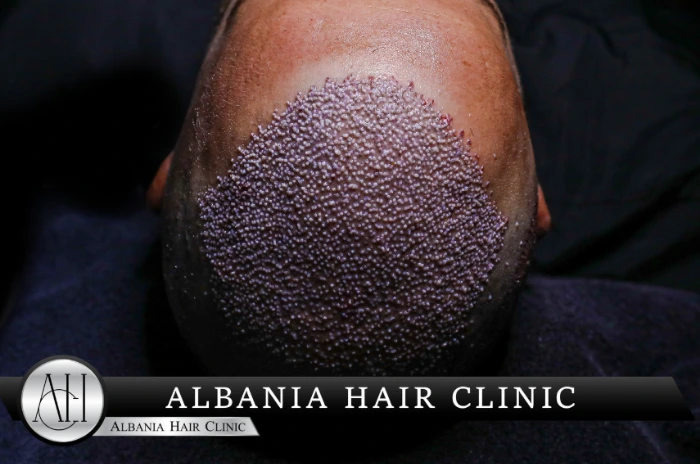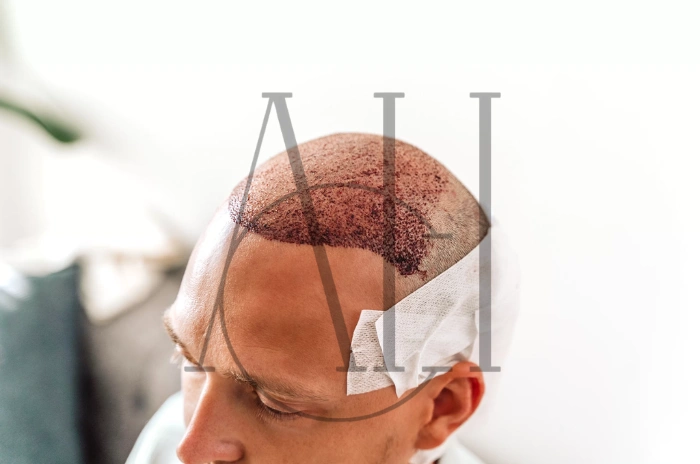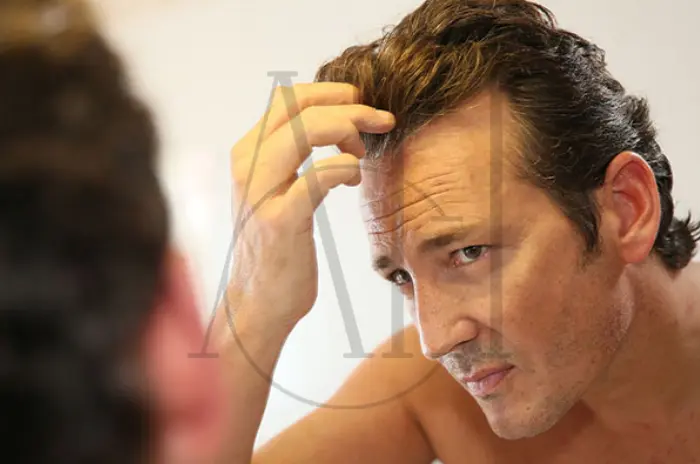A common question among individuals considering hair transplant surgery is: how long do hair transplants last? As hair restoration becomes increasingly popular particularly hair transplants in Turkey it’s important to understand the longevity of the results, maintenance needs, and influencing factors. This comprehensive guide addresses whether hair transplant lasts forever, what affects durability, and how to ensure lasting outcomes.
Table of Contents
ToggleWhat Is a Hair Transplant?
A hair transplant is a surgical procedure that relocates hair follicles from one part of the scalp (donor site) to a bald or thinning area (recipient site). It’s most commonly used to treat pattern baldness, especially in men.
-
Two primary methods: FUE and DHI
-
Permanent solution to hair loss
-
Natural-looking and minimally invasive
Types of Hair Transplant Surgeries
-
FUE (Follicular Unit Extraction): Extracts individual hair follicles from the donor site.
-
DHI (Direct Hair Implantation): A more advanced version of FUE with a specialized implanter pen.
-
FUT (Follicular Unit Transplantation): Older method involving strip harvesting (used less today).
What About Hair Plugs and Older Methods?
In the past, hair transplants used “hair plugs” — large clusters of follicles resulting in unnatural patterns. Today’s techniques, particularly FUE and DHI, offer much more refined results.
-
Hair plugs often caused patchy appearances
-
Modern techniques replicate natural growth patterns
-
Longevity has improved significantly with advanced methods
How Long Does FUE Hair Transplant Last?
FUE transplants can last a lifetime when performed correctly:
-
Transplanted hairs are resistant to DHT (a hair-loss hormone)
-
Growth begins 3–4 months after surgery
-
Full results visible in 12–18 months
How Long Does DHI Hair Transplant Last?
DHI also provides long-lasting results with faster healing and more precise placement:
-
Minimizes scalp trauma
-
High-density implantation
-
Results often permanent, like FUE
How long does a hair transplant last?
So, how long does a hair transplant last? With proper care, the transplanted hair can last for decades or even a lifetime. However, natural aging and genetics can still affect overall density.
-
Most results are permanent
-
Additional sessions may be needed if hair loss continues in untreated areas
How To Care for A Hair Transplant?
After the procedure, proper post-operative care is essential to maintain the success of the hair transplant:
-
Avoid sun exposure and excessive sweating
-
Follow washing guidelines provided by the surgeon
-
Use prescribed medications and avoid harsh chemicals
Can I Still Go Bald After Hair Transplant?
Yes — in untreated areas, hair loss can still occur due to genetics:
-
Transplanted hair is permanent
-
Native hair (non-transplanted) may thin over time
-
Maintenance treatments may be necessary
How Can I Prevent Hair Loss After A Hair Transplant?
1. Alterations In Your Diet and Lifestyle
-
Eat a balanced diet rich in vitamins and proteins
-
Avoid smoking and limit alcohol
-
Manage stress levels
2. Medications
-
Finasteride and Minoxidil may prevent further thinning in surrounding areas
3. PRP
-
Platelet-rich plasma (PRP) injections can support hair follicle strength and growth
4. Secondary hair transplant
-
Additional procedures can enhance density if needed
5. Scalp Micropigmentation
-
Creates an illusion of density in thinning areas
6. Forehead Reduction
-
An option for those with high hairlines who want to lower the frontal hair border
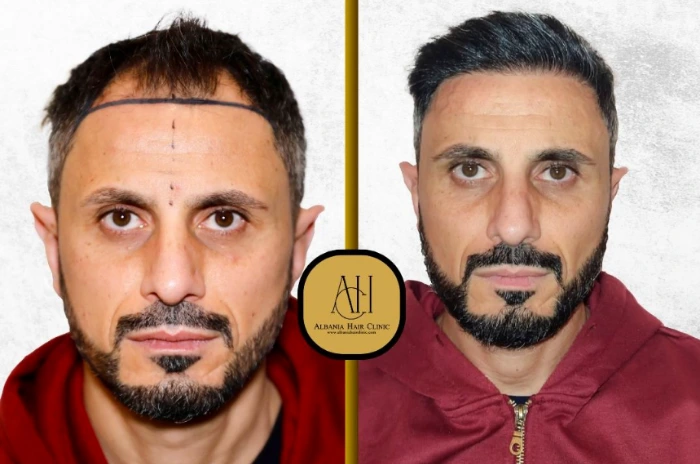
Will you need a second hair transplant?
It depends on:
-
Age at first procedure
-
Progression of hair loss
-
Satisfaction with initial density
Many patients undergo a second hair transplant to improve coverage or refine the hairline.
What hairstyle do you want after a hair transplant?
-
Consider hairstyles that suit your face shape
-
Avoid tight styles during recovery
-
Many patients return to fades, pompadours, or textured cuts once healing is complete
What are the Positives and Disadvantages of Having a Hair Transplant?
Pros:
-
Natural appearance
-
Permanent results
-
Boost in self-esteem
Cons:
-
Cost (especially outside Turkey)
-
Requires downtime and recovery
-
Some may need multiple sessions
Does Hair Transplant Method Affect How Long My Result Will Last?
Yes. FUE and DHI generally offer better and longer-lasting outcomes than older techniques:
-
Less scarring
-
Higher survival rate of grafts
-
Faster healing
Extraneous Factors That Can Affect Hair Transplant Results
-
Poor post-op care
-
Unqualified surgeon
-
Underlying health conditions
-
Excessive sun or heat exposure
Are Hair Transplant Scars Permanent, or Can They Be Removed?
-
FUE leaves tiny dots, often invisible
-
FUT may leave a linear scar
-
Hair transplant scars can be hidden with hair growth or corrected with SMP or revision surgery
What happens ten Years after a hair transplant?
-
Transplanted hair usually remains
-
Natural thinning may occur in untreated regions
-
Some patients opt for touch-ups
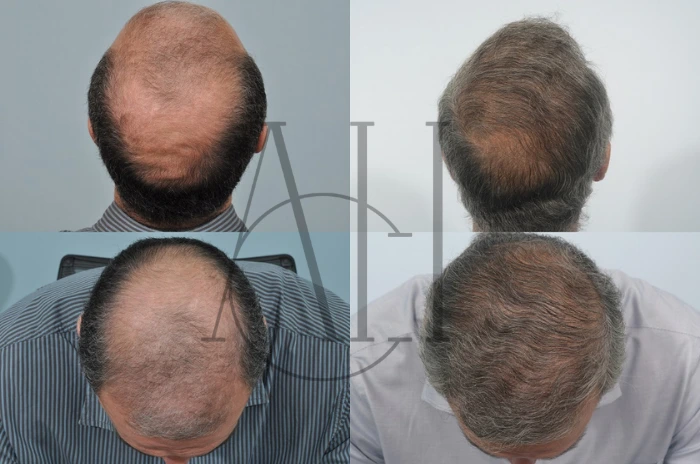
What impacts the longevity of your transplanted hair?
-
Surgeon skill and technique
-
Health of donor hair
-
Compliance with aftercare instructions
-
Ongoing medical treatment (e.g., Finasteride)
Do hair transplants fall out again?
Some shedding is normal in the first 2–4 weeks, known as “shock loss.”
-
Regrowth starts in month 3–4
-
Permanent hairs grow from month 6 onward
Does transplanted hair go grey?
Yes — it follows your body’s natural aging. If your donor area turns grey, your transplanted hair will also become grey over time.
What About Further Hair Loss?
-
Only the transplanted hair is resistant to DHT
-
Preventative care for surrounding hairs is crucial
-
Regular check-ups can help catch early signs
Hair Transplant Longevity Comparison Table
| Method | Typical Longevity | Maintenance Required | Visible Results Timeframe |
|---|---|---|---|
| FUE | 15+ years to lifetime | Low | 6–12 months |
| DHI | 15+ years to lifetime | Low | 6–10 months |
| FUT | 10–15 years | Moderate | 12–18 months |
| Hair Plugs | Varies | High | Often unnatural |
FAQ for How Long Does a Hair Transplant Last?
How long do hair transplants typically last, and are they considered permanent?
Hair transplants are considered permanent, with many patients keeping results for life if properly maintained.
What factors influence the longevity of a hair transplant?
Surgeon skill, post-op care, genetic predisposition, and treatment adherence are key factors.
Can I still experience hair loss after a hair transplant?
Yes , only transplanted hairs are permanent. Native hairs can still thin over time.
Is one hair transplant session sufficient for life?
Sometimes yes, but additional procedures may be needed for greater density or new areas of thinning.
How do FUE and DHI hair transplant methods compare in terms of longevity?
Both offer long-lasting results, but DHI may offer denser placement and faster healing.
What post-transplant care is essential to ensure long-lasting results?
Avoid trauma, use medications like Finasteride/Minoxidil, and follow all medical instructions.
Do transplanted hairs turn grey over time?
Yes, they follow the natural graying process of your donor hair.
Are hair transplant scars permanent, and how can they be minimized?
Scarring depends on the method; FUE leaves minimal marks, often hidden by surrounding hair.

